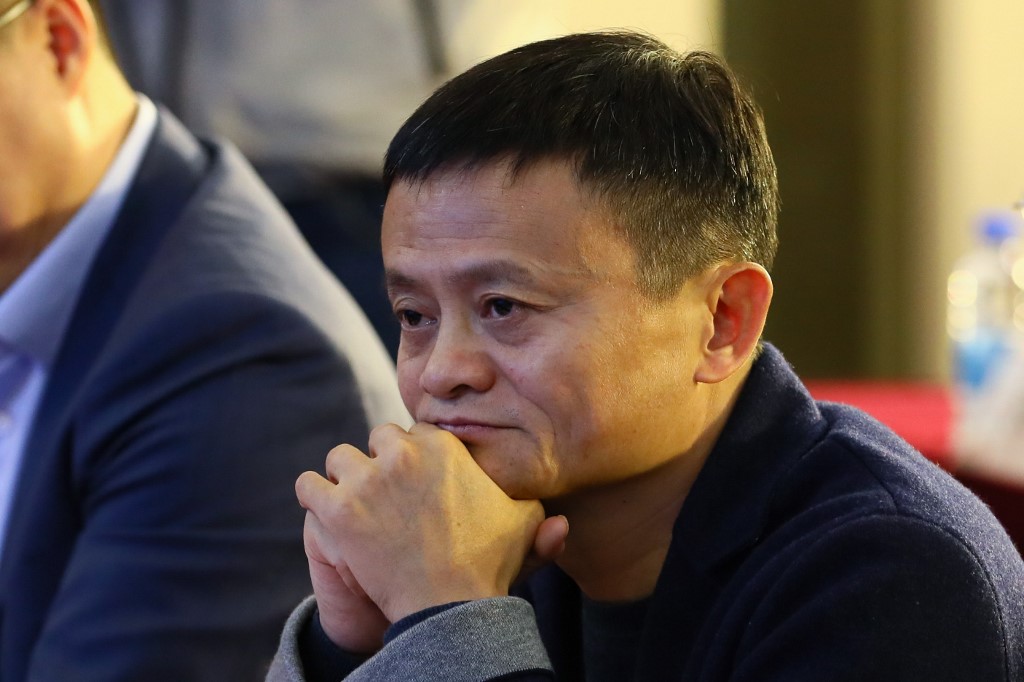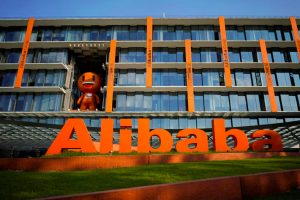(AF) China’s most famous businessman and one of the world’s richest men, Jack Ma (Ma Yun) has not been seen in public for weeks, after suffering a significant fall from grace in early November.
Ma missed the final episode of his reality TV show, on which he was due to appear as a judge, and that has fueled social media speculation over his whereabouts.
The Financial Times reported on Friday that Ma was replaced as a judge in the final episode in November of a game show for entrepreneurs called Africa’s Business Heroes.
An Alibaba spokeswoman told Reuters on Monday that the change was due to a scheduling conflict, but declined to comment further.
Meanwhile, top central bank officials have ordered a regulatory clampdown on his sprawling business empire.
But most disturbingly, perhaps, online vitriol towards Ma has heated up (or been ramped up) dramatically. Usually known as “Uncle Horse” – as his Chinese surname ‘Ma’ means horse – was this week damned as a money-grabbing ‘vampire’ who exploits the poor.
A commentary in Netease this week said: “On November 3, the listing plan of Ant Group was suspended. Jack Ma, who ‘dislikes money’, not only lost the best chance of becoming the world’s richest man, but even the reputation he had accumulated over many years collapsed almost overnight, and he was no longer a kind ‘Father Horse’. Instead, he became the evil ‘vampire’ in people’s hearts.”
‘Embracing Supervision’
Jack Ma, the Netease report said, is now “embracing supervision” at an undisclosed location – a statement that makes fun of the fact the country’s second richest man is either in hiding, or has been detained, and forced to adhere to a major restructuring of his biggest businesses.
There have been attacks on Ma and other members of China’s uber rich for some time and some observers suspect they come from a very high level, a powerful man who likes to see China’s tall poppies brought down to earth.
One notable analysis that ran in the People’s Daily, the Communist Party mouthpiece, in its online version in November 2019, proclaimed: “There will be no Jack Ma era”.
“Ma Yun is savvy, but without the support of national policies, Ali will not be able to become a trillion business empire, and Ma Yun cannot have the influence and popularity today,” it said.
Infamous Speech
But the criticism of Ma has intensified since late October last year when he criticized China’s banking system at a forum in Shanghai, saying that banking officials seemed to have a “pawnshop mentality”. He also went on a tirade about China’s financial regulatory structure being unsuitable for fintech firms like his.
This occurred days before the Ant Group was due to stage an initial public offering in Hong Kong and Shanghai. The $37-billion IPO was set to be the world’s biggest, until regulators pulled the plug, allegedly because of concerns over the growth of online lending and its capacity to destabilise China’s financial system, which was hit hard by the coronavirus and has left the country’s banks swamped with bad loans.
According to the dialectic from Beijing, companies such as Ma’s, that lend cheap money often to young people, who then develop bad consumer habits, these internet micro-lenders are finished, if they cannot get on to a track endorsed by banking regulators.
In fact, it is not only Jack Ma who is in grip of “supervision”. Another giant, JD.com’s “honest man” Liu Qiangdong, has been brought down in the public eye. Liu Qiangdong led JD.com to make two public apologies, after he quickly made a decision and began to replace the management of JD.com to avoid the painful path of Ma and Ant Group.
JD Digital has been recognised by the central bank, which analysts say is a trump card likely to increase Liu Qiangdong’s net worth. After seven years of development, JD.com is also seeking to go public in the near future. The estimated market value could be more than $30 billion.
The business approach of other tech giants, like Jingdong, is very similar to that of Ant, and the corresponding problems in its development process may also need to be rectified. That result may also affect Liu Qiangdong, who was described by Netease as ‘the shareholder who doesn’t want to be seen’.
Ma’s personal wealth was put at more than $60 billion before the Ant IPO was shot out of the sky, but that has allegedly dropped by $12 billion given the plunge in the value of his shareholdings over the past two months since his run-in with the country’s senior leadership.
His current whereabouts are not known. But Ma, a member of the Communist Party, was allegedly warned by the government not to leave the country, one foreign news agency reported about a week ago.
If he is in custody, he would not be the first, and surely not the last, high-profile individual to disappear in such a way.
In 2013, the Communist Party of China legalised arbitrary and secret detentions. Celebrities, officials, entrepreneurs and people from all walks of life have had such experiences for different lengths of time. The most well-known was the disappearance of actress Fan Bingbing, but other notables include the gene-editing scientist He Jiankui and former Interpol chief Meng Hongwei. All reappeared requite and chastened after some time.
Not everyone is convinced that Ma has been taken into custody. “I think he’s been told to lay low,” said Duncan Clark, chairman of Beijing-based tech consultancy BDA China. “This is a pretty unique situation, more linked to the sheer scale of Ant and the sensitivities over financial regulation,” he was quoted as telling Reuters.
Ma’s predicament is likely related to the deeper financial issues of Alipay, now known as Ant Financial Service Group. Ant, which Ma founded nearly 20 years ago, is the world largest’s mobile payment platform, with at least 730 million users.
Anti-Monopoly Probe
An anti-monopoly investigation has since been launched into Alibaba, Ma’s original e-commerce group founded in Hangzhou in 1999.
Pan Gongsheng, a deputy governor of People’s Bank of China, has said that Ant’s corporate governance was “not sound”. He advised it to “return to its origins” as a payment services provider.
Pan, who summoned Ant representatives to a meeting with regulators in Beijing on December 26, said Ant must “strictly rectify illegal credit, insurance and wealth management financial activities”.
Those divisions are the business’ fastest-growing and most profitable operations, analysts have said.
Pan stopped short of calling for a full break-up of the Ant empire, but said the group should set up a separate holding company to ensure regulatory compliance.
The evaluation of the People’s Daily was that there is no so-called era of a certain person, only certain people who have been accomplished during an era. Regardless of whether it is Jack Ma or another tycoon, the reason why their companies were able to grow so well was not only their own efforts, but also the national policies that supported their development.
“If you disregard your food and make use of the policy advantages given by the state to do business that is not conducive to economic development and not beneficial to the people’s lives, you will only end up reaping the consequences,” the state paper said.
That warning, written 14 months ago, appears to have been fulfilled. But to what extent, we can only wait and see.
• By Chris Gill
NOTE: This report has been amended after an error was found in the initial version, and updated to meet new style standards.
ALSO SEE:
Ant Group IPO swept off the table
Global financial system must include internet banking
Alibaba value plunges over $100bn over PBOC shakeup, anti-trust probe
Ant and Tencent drop ‘bank deposit shopping’ as Beijing cracks down
























